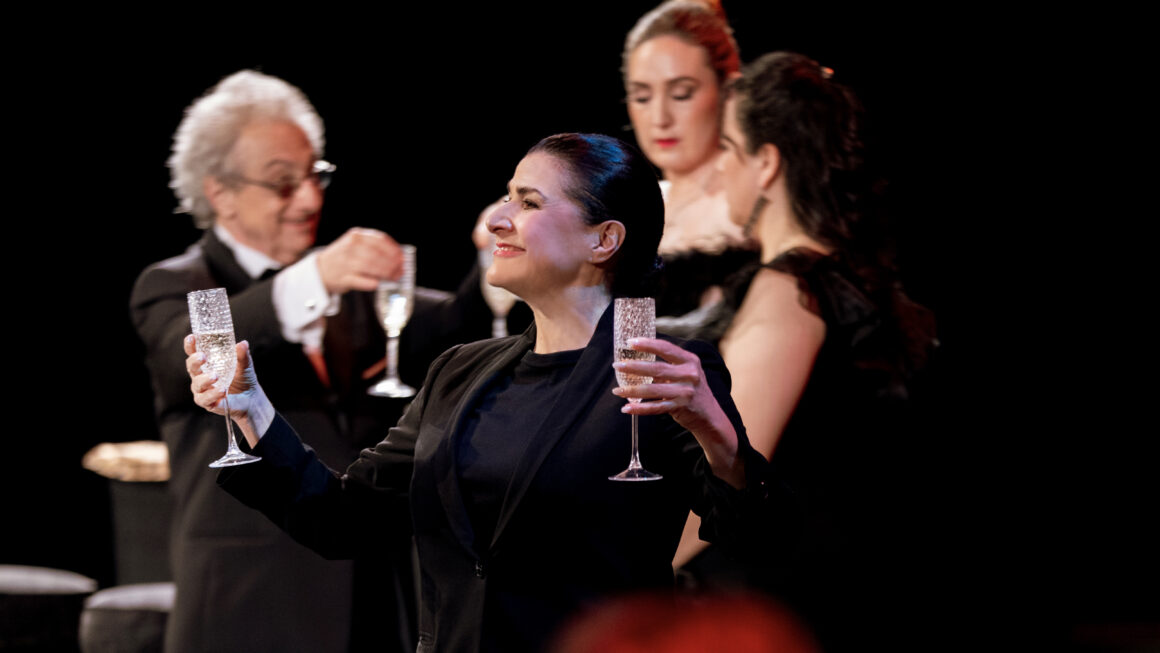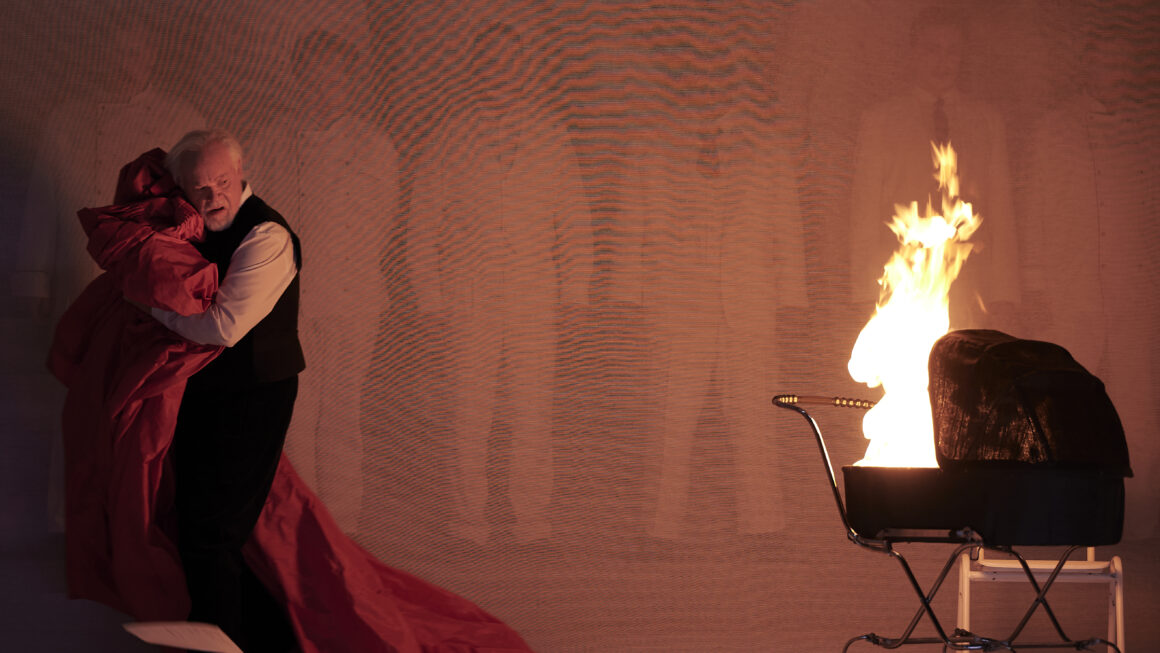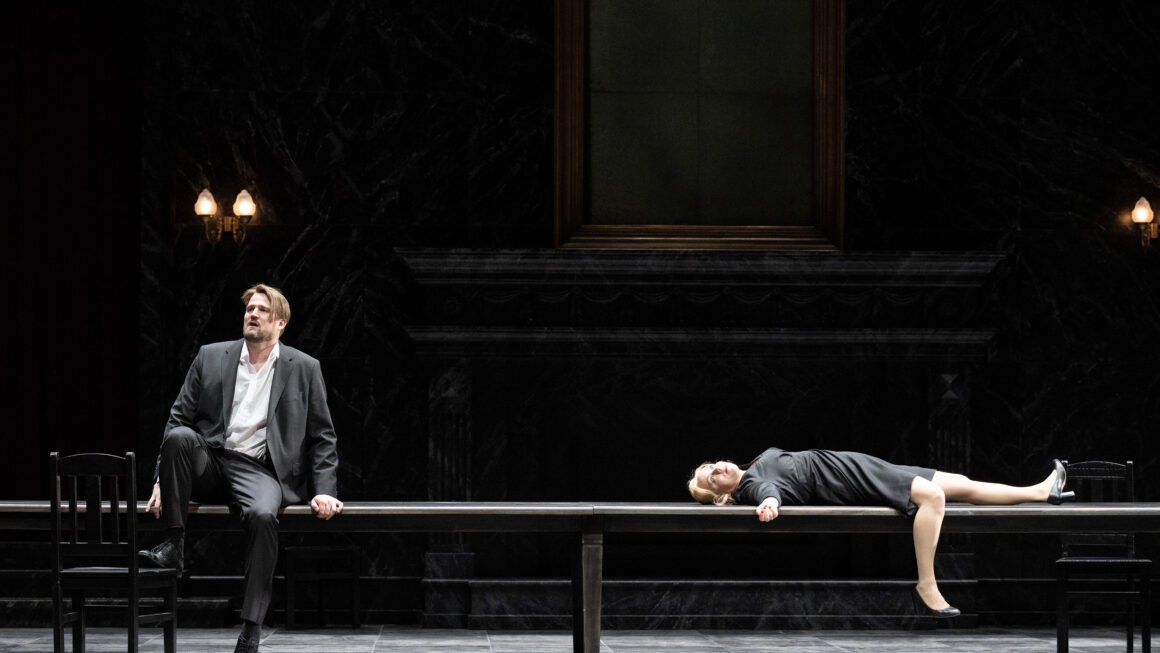Co tedy stojí za to? – Nic! Zhola nic! (“- So what is it worth? – Nothing! Absolutely nothing!”) It is with these words that, in Act II, Emilia Marty (or/and Eugenia Montez, or/and Elsa Müller, or/and Ellian Mac Gregor, or/and Ekaterina Myškin… and finally Elina Makropulos: EM in short!) responds, imbued with acidity and disdain, to Baron Prus’s question. The embodiment of several women who have lived and passed through more than 300 years, Emilia Marty, born in Crete, is the victim of the far-fetched attempts of her father, Hieronymus Makropulos, Emperor Rudolf II’s doctor, to develop the Elixir Vitae at the latter’s request. After serving as a guinea pig for her father’s experiments, Elina Makropulos absconded with the recipe for this beverage, written on a parchment, after her father had been condemned by the emperor, who strongly doubted the effects of the substance. Elina is then ordered to lead a long and inextricable 300-year existence; the effect is only prolonged beyond three centuries by having at her disposal the document thanks to which the legendary drink can be prepared. At the start of the opera, Elina (then aged 337) plays the role of Emilia Marty, a great opera singer ([…] to je největší zpěvačka na světě! (“she is the greatest singer in the world!”) according to Krista in act I) who is interested in the Gregor/Prus case, dating back over 100 years. She even helps to solve the affaire, by finding the exact location of a document that will clear up the dispute in Albert Gregor’s favour.
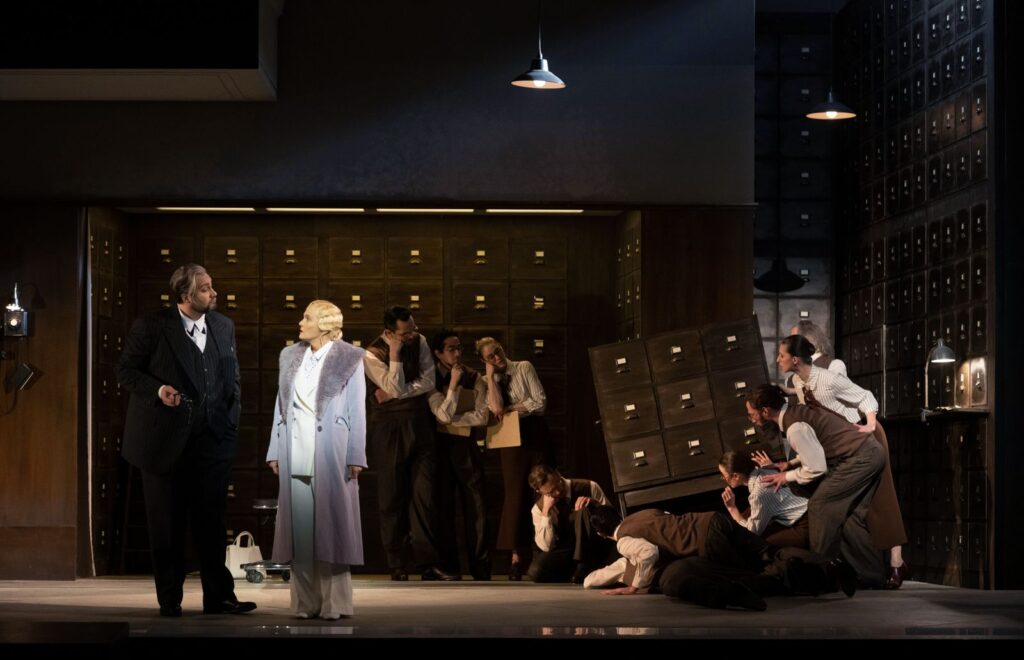
Inspired by Karel Čapek’s piece of the same name, Leoš Janáček’s masterpiece was written as a thriller – without necessarily focusing on the philosophical reflections on longevity or the satirical/political aspects of Čapek’s Věc Makropulos. Janáček, deliberately and without concessions, purifies the story and focuses all the attention and development of the plot on the character of Marty, who becomes, from the moment he appears, the backbone of the story and the music. Janáček’s writing of the score conceals a number of peculiarities that we discover as we listen to the piece: he revolves around notes and harmony, seeking out the vocal line on the spoken note. In his music, it is the voice that modulates or that, in any case, must give a glimpse of modulation. Hostile to a shimmering vocality, it is only from the second act onwards and in a few moments of the third that a few rare lyrical passages appear: the rest of the time the characters remain vocally “strident”. In terms of the organisation of the narrative and the music that accompanies it, there is no division into scenes or predefined architecture, a sparing use of leitmotive, and a virtual absence of closed forms (apart from the episode uniting Hauk-Šendorf and Marty in the second act). Reduced to a quasi-permanent recitative, without arias or duets, in this opera where singing is not the vehicle for the action, it is up to the orchestra to magnify everything.
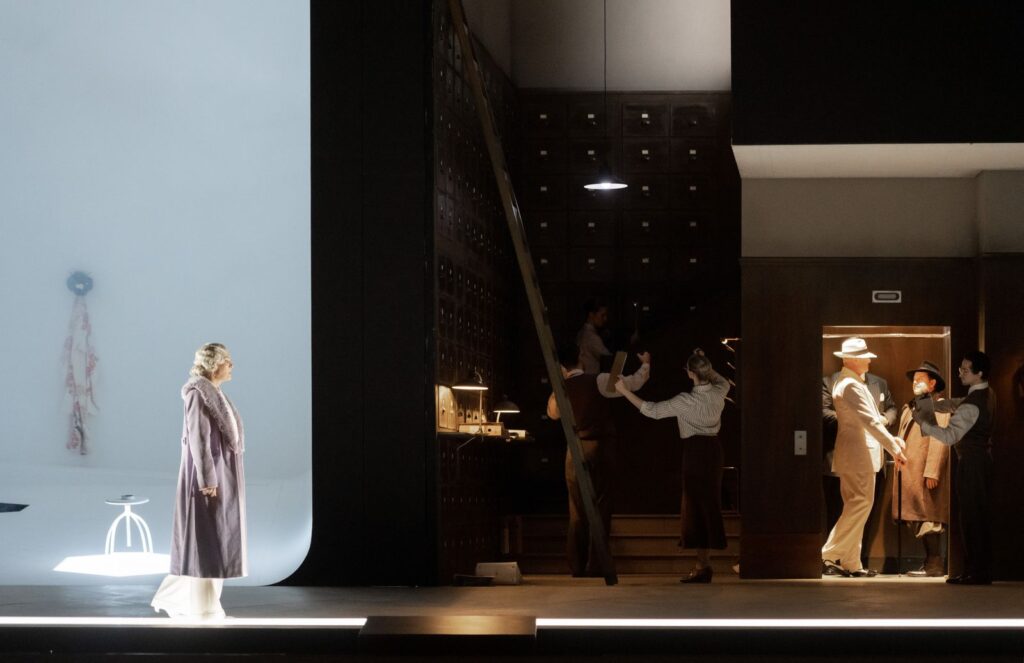
Dorothea Röschmann has been appointed to the role of Emilia. She is the first to be heard, like a magnet attracting the audience’s attention and the orchestra’s thunderbolt. Isn’t Emilia Marty a singer? A diva perhaps? That’s exactly what’s needed for a performer as complete as this peerless Mozartean – it’s almost astonishing to see her in this role, but the challenge is quickly met: sharp as a tack when she needs to be, with very clear and accurate articulation, and a projection perfectly adapted to the acoustic characteristics of the Staatsoper Unter den Linden. A character of maturity (many others have taken on Emilia after building a solid career, such as Anja Silja, Libuše Prylová and Elisabeth Söderström, the reference in the discography currently available), Dorothea Röschmann is capable of providing everything necessary to ensure that the magnetism that reigns from Emilia Marty’s first appearance is assured on stage, in full view of us all, with a dramatic, strong, expressive, imperious soprano voice that takes the role in its stride. She is at times a shrew, a raven, but also a wounded woman, perfectly aware of the effects of the passage of time. The timbre is beautiful, very fleshy, shaped by a faultless career, with a voice that is sometimes insidious, with devastating high notes.

Aleš Briscein brings to life an Albert Gregor full of elan, with the clarity, lightness and power ideal for this role. The contrast that is established between Albert and Emilia from their first meeting gives the plot a new flavour, which the audience does not expect but which adds to the richness of this production.
Adam Plachetka’s Baron Prus is the very expression of a man with means and the knowledge that he has them, without whom nothing and nobody can achieve anything. Rough from a silky timbre, cantankerous yet charming, always lordly, he crushes everything and everyone (including his son), except the prima-donna who, by submitting to him at the end of Act II (Studená jak led, Jak bych držel mrtvou…), gets what she wants.
Robert Jindra’s conducting shows that he has Janáček’s sense of phrasing. A Czech himself, he conducts with passion and clarity the complex polyphony of this partition, whose jerky lyricism always succeeds under his baton in asserting itself in the drama when necessary – as, for example, in the duets between Krista (Natalia Skrycka) and Janek (Linard Vrielink), carried marvellously by their respective performers. The aridity of the work is respected from beginning to end, without compromise, even if it means offending those less accustomed to this repertoire.
Leaving the concert hall, one is left with an aftertaste of nostalgia, a vague à l’âme that is not entirely incoherent: knowing the difficult conditions under which Janáček conceived his Věc Makropulos (his impossible love for Kamila Stösslova, his almost desperate mindset), we realise that Emilia Marty’s decline – despite the culmination in the last act of a torrent of emotions after all the coldness she has shown – is one that marks the lives of all beings concerned by this notion of finitude that runs through our existences. Ahi, nic netrvá věčně. Vanitas… Prach a popel… (“Ah, nothing lasts forever. Vanitas… Dust and ashes…”).
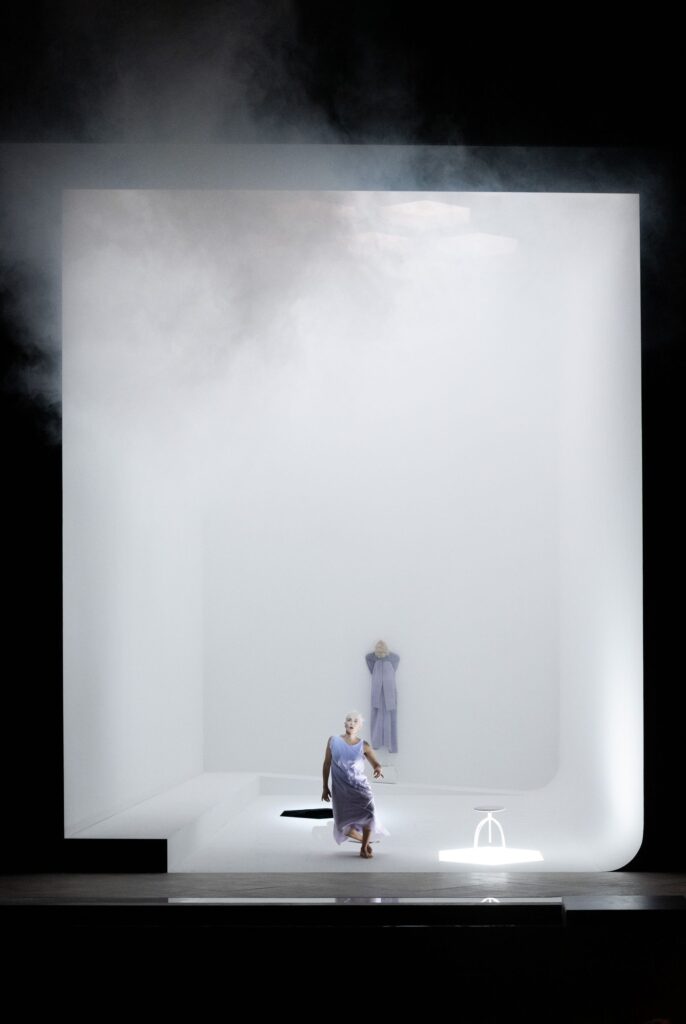
Casting: Emilia Marty (Dorothea Röschmann), Albert Gregor (Aleš Briscein), Vítek (Stephan Rügamer), Krista (Natalia Skrycka), Jaroslav Prus (Adam Plachetka), Janek (Linard Vrielink), Dr. Kolenatý (Jan Martiník), Stage Technician (Dionysios Avgerinos), Cleaning Woman (Adriane Queiroz), Hauk-Šendorf (Jan Ježek), Chambermaid (Sandra Laagus).


